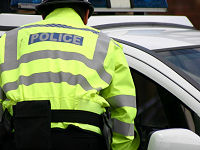8 February 2011
Waveney MP, Peter Aldous today welcomed the Government’s new approach to anti-social behaviour. In January this year there were 2536 reported incidents of anti-social behaviour across the Suffolk police area. It’s time now for a fresh approach that properly supports victims and helps the authorities to act quickly and effectively.
The current tools and powers created by the last Labour Government are too bureaucratic and do not work effectively against anti-social behaviour. Recent statistics show that more than 56 per cent of ASBOs issued in 2009 were breached, many more than once.
On 7 February the government launched a consultation setting out a series of proposals to tackle anti-social behaviour:
The five powers under consultation are:
These proposals to reform the anti-social behaviour tools and powers are just one part of the government’s new approach to anti-social behaviour that includes:
Mr Aldous said:
“I fully support this commitment from the government to fight back against anti-social behaviour with stream-lined but more effective powers, and real, meaningful penalties. Suffolk is generally a safe place to live and the police do an excellent job, but a new approach is needed to support victims and enable the authorities to act quickly and effectively.”
The current tools and powers created by the last Labour Government are too bureaucratic and do not work effectively against anti-social behaviour. Recent statistics show that more than 56 per cent of ASBOs issued in 2009 were breached, many more than once.
On 7 February the government launched a consultation setting out a series of proposals to tackle anti-social behaviour:
- Easier to use powers made available to the authorities.
- More streamlined system - replacing the current 18 formal powers with just 5.
- Real and meaningful penalties for perpetrators who breach the terms of their punishments
- Greater powers for communities and residents to make sure the authorities take action.
The five powers under consultation are:
- Community Triggers - local agencies will be compelled to take action if no action is taken after several people in the same neighbourhood have complained or one individual complains three times
- Criminal Behaviour Orders – issued by the courts after conviction, would ban an individual from certain activities or places. They would require them to address their behaviour, for example attending drug treatment programmes. A breach would see an individual face a maximum five year prison term;
- Crime Prevention Injunctions - designed to nip bad behaviour in the bud before it escalates. The injunction would carry a civil burden of proof, making it quicker and easier to obtain than previous tools. For adults, breach of the injunction could see you imprisoned or fined. For under-18s a breach could be dealt with through curfews, supervision or detention.
- Community Protection Orders - comprising one order for local authorities to stop persistent environmental ASB like graffiti, neighbour noise or dog fouling; and another for police and local authorities to deal with more serious disorder and criminality in a specific place such as closing a property used for drug dealing; and
- Police ‘Direction’ powers – a power to direct any individual causing or likely to cause crime or disorder away from a particular place and to confiscate related items.
These proposals to reform the anti-social behaviour tools and powers are just one part of the government’s new approach to anti-social behaviour that includes:
- Directly-elected Police and Crime Commissioners to restore the link between police and the communities they serve
- Street level crime maps and local policing information that allow the public to see exactly where crime and ASB are committed in their neighbourhood;
- A new approach for handling complaints of ASB that will be trialled in eight police forces. The new system for logging complaints will make it easier to share information, helping to quickly identify and protect vulnerable victims;
- Plans for social landlords to speed up eviction of tenants who commit persistent ASB, announced by the Housing Minister earlier this year; and
- Baroness Newlove’s work, the Government’s Champion for Active Safer Communities who is working to empower communities and drive up local activism.
Mr Aldous said:
“I fully support this commitment from the government to fight back against anti-social behaviour with stream-lined but more effective powers, and real, meaningful penalties. Suffolk is generally a safe place to live and the police do an excellent job, but a new approach is needed to support victims and enable the authorities to act quickly and effectively.”

